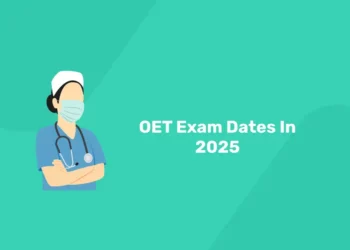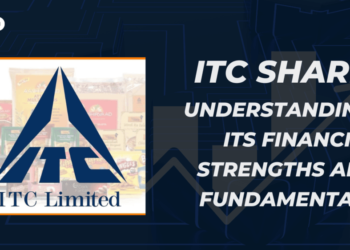Table of Contents
The Union Public Service Commission (UPSC) has recently conducted the UPSC Combined Civil Services Examination 2020 Prelims test. Candidates have found the paper to be difficult. Most questions in the General Studies-1 were application-based. Comparing to the previous year, this question paper has seen more questions from science and technology, economy, while the current affairs questions were based on the polity. Let’s discuss the questions asked in the UPSC IAS prelims 2020 with more details into the recruitment process.
Attempt a free mock test to ace your Preparation
UPSC CSE Exam Pattern
CSE Preliminary Examination
| Paper | Number of questions | Maximum Marks | Exam Duration |
| General Studies I | 100 | 200 | 2 hours |
| General Studies II (CSAT) | 80 | 200 | 2 hours |
Main Examination
| Paper | Subject | Exam Duration | Total marks |
| Paper A | Compulsory Indian language ( Languages included in the Eighth Schedule to the Constitution) | 3 hours | 300 |
| Paper B | English Language | 3 hours | 300 |
| Paper I | Essay | 3 hours | 250 |
| Paper-II | General Studies- I ( Indian Heritage and Culture, History and Geography of the World and Society) | 3 hours | 250 |
| Paper III | General Studies- II (Governance, Constitution, Polity, Social Justice and International relations) | 3 hours | 250 |
| Paper IV | General Studies- III (Technology, Economic Development, Bio-diversity, Environment, Security and Disaster Management) | 3 hours | 250 |
| Paper V | General Studies IV ( Ethics, Integrity and Aptitude) | 3 hours | 250 |
| Paper VI | Optional I | 3 hours | 250 |
| Paper VII | Optional II | 3 hours | 250 |
Optional Subjects
| Agriculture | Animal Husbandry and Veterinary Science | Anthropology | Botany | Chemistry |
| Civil Engineering | Commerce and Accountancy | Economics | Electrical Engineering | Geography |
| Geology | History | Law | Management | Mathematics |
| Mechanical Engineering | Medical Science | Philosophy | Physics | Political Science and International Relations |
| Psychology | Public Administration | Sociology | Statistics | Zoology |
| The literature of any one of the following languages: Assamese, Bengali, Bodo, Dogri, Gujarati, Hindi, Kannada, Kashmiri, Konkani, Maithili, Malayalam, Manipuri, Marathi, Nepali, Odia, Punjabi, Sanskrit, Santhali, Sindhi, Tamil, Telugu, Urdu and English. | ||||
Before the final selection, there will be a personal interview for the successful candidates from the Main examination. The maximum marks allotted for the personal interview is 275. So the total marks for the merit are 2075.
Attempt free mock test to ace your Competitive Exam Preparation
UPSC CSE Posts
Through the Civil Service Examination UPSC recruits candidates towards the following government services across various departments:
- Indian Administrative Service (IAS)
- Indian Foreign Service (IFS)
- Pondicherry Police Service, Group ‘B’
- Indian Police Service (IPS)
- Indian P & T Accounts & Finance Service, Group ‘A’
- Pondicherry Civil Service, Group ‘B’
- Indian Audit and Accounts Service, Group ‘A’
- Indian Revenue Service (Customs and Central Excise), Group ‘A’
- Delhi, Andaman & Nicobar Islands, Lakshadweep, Daman & Diu and Dadra & Nagar Haveli Civil Service, Group ‘B’
- Indian Defence Accounts Service, Group ‘A’
- Indian Revenue Service (I.T.), Group ‘A’
- Indian Ordnance Factories Service, Group ‘A’ (Assistant Works Manager, Administration)
- Indian Postal Service, Group ‘A’
Attempt Free Daily Current Affairs Mock Test
- Indian Civil Accounts Service, Group ‘A’
- Indian Railway Traffic Service, Group ‘A’
- Delhi, Andaman and Nicobar Islands, Lakshadweep, Daman and Diu and Dadra and Nagar Haveli Police Service, Group ‘B’
- Indian Railway Accounts Service, Group ‘A’
- Indian Railway Personnel Service, Group ‘A’
- Assistant Security Commissioner in Railway Protection Force, Group ‘A’
- Indian Defence Estates Service, Group ‘A’
- Indian Information Service (Junior Grade), Group ‘A’
- Armed Forces Headquarters Civil Service, Group ‘B’ (Section Officer’s Grade)
- Indian Trade Service, Group ‘A’
- Indian Corporate Law Service, Group ‘A’
UPSC IAS Prelims 2020 Exam Analysis
1: Which one of the following is not a Harappan site?
This year, UPSC IAS Prelims 2020 General Studies-1 paper was filled with questions related to agriculture and recent trends on MSP, Agri procurements, and on eco-friendly agriculture practices. For the majority of aspirants, this year prelims paper was on the difficult side.
| Subjects/ Topics | Number of Questions | Difficulty Level |
| Polity | 16 | Easy to Moderate |
| Economy | 14 | Easy to Moderate |
| Science and Technology | 10 | Easy to Moderate |
| History and Geography | 18 | Moderate to Difficult |
| Environment | 17 | Moderate |
| Current Affairs | 15 | Moderate |
Let’s find some of the UPSC IAS Prelims questions and answers:
- Which of the following statements are correct regarding the general difference between plant and animal cells?
- Plant cells have cellulose cell walls whilst animal cells do not.
- Plant cells do not have a plasma membrane, unlike animal cells which do.
- A mature plant cell has one large vacuole whilst animal cell has many small vacuoles.
Select the correct answer using the code given below:
- 1 and 2 only
- 2 and 3 only
- 1 and 3 only
- 1, 2 and 3
Answer: 1 and 3 only
Only plant cells have cellulosic cell walls. All cells do have a plasma membrane. Plants cells are primarily identified with the presence of large vacuole at the centre of the cell.
- With reference to the cultural history of India, which one of the following is the correct description of the term ‘paramitas’?
- The earliest Dharmashastra texts are written in aphoristic (sutra) style.
- Philosophical schools that did not accept the authority of Vedas.
- Perfections whose attainment led to the Bodhisattva path
- Powerful merchant guilds of early medieval South India.
Answer: Perfections whose attainment led to the Bodhisattva path
- Wellesley established the Fort William College at Calcutta because
- He was asked by the Board of Directors at London to do so
- He wanted to revive interest in oriental learning in India
- He wanted to provide William Carey and his associate’s employment
- He wanted to train British civilians for administrative purposes in India
Answer: He wanted to train British civilians for administrative purposes in India
- Rajya Sabha has equal powers with Lok Sabha in
- The matter of creating new all India services
- Amending the Constitution
- The removal of the government
- Making cut motions
Answer: Amending the Constitution
- If a particular plant species is placed under Schedule VI of The Wildlife Protection Act, 1972, what is the implication?
- A licence is required to cultivate that plant.
- Such a plant cannot be cultivated under any circumstances.
- It is a Genetically Modified crop plant.
- Such a plant is invasive and harmful to the ecosystem.
Answer: A licence is required to cultivate that plant.
- Along with the Budget, the Finance Minister also places other documents before the Parliament which include ‘The Macro-Economic Framework Statement’. The aforesaid document is presented because this is mandated by:
- Long convention standing parliamentary
- Article 112 and Article 110 (1) of the Constitution of India
- Article 113 of the Constitution of India
- Provisions of the Fiscal Responsibility and Budget Management Act, 2003
Answer: Provisions of the Fiscal Responsibility and Budget Management Act, 2003
Attempt a free Indian Polity sectional mock test to ace your Preparation
UPSC CSE Prelims 2020 Question Paper
Click here to download the free pdf of the solved question paper of UPSC IAS Prelims 2020 General Studies (GS)-1:
Entri wishes you all the best for your upcoming examinations. Start your Preparation today itself. Entri will help you with thousands of questions. Attempt mock tests, analyze yourselves to improve your success rate.











